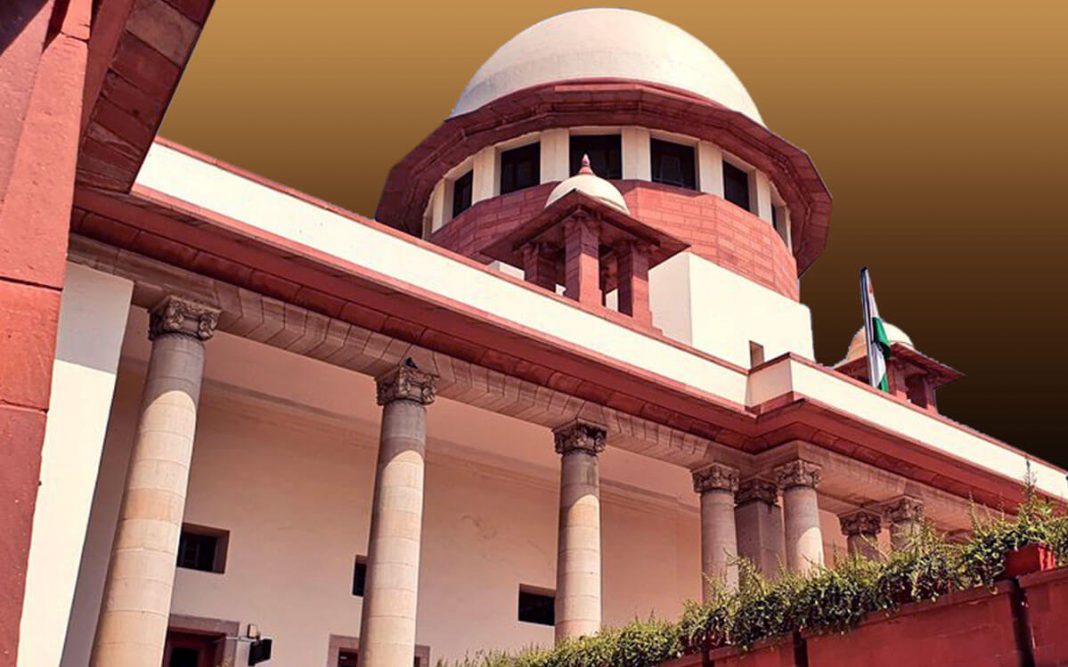The Supreme Court has said the evidentiary value of a medical witness is very crucial to corroborate the case of the prosecution and it is not merely a check upon testimony of eyewitnesses, it is also independent testimony, because it may establish certain facts, quite apart from other oral evidence.
The bench of Chief Justice of India N.V. Ramana, and Justices Krishna Murari and Hima Kohli has upheld the order of conviction passed against two people under Section 324 IPC & Section 27 of the Arms Act for causing bodily injury by bullets on a man on account of a small altercation. The trial court had convicted them under Section 307 IPC (Attempt to Murder) and sentenced to five years imprisonment and plus three years under firearms. But on an appeal to the High Court, it had converted the conviction under 307 IPC to 324 IPC and reduced the sentence of five years to three years and kept the sentence of three years intact under Section 27 of the Arms Act.
One of the convicts took the plea of alibi to argue that he wasn’t present on the spot at the time of alleged incident. But the Apex Court took note that the prosecution witness has categorically stated that appellant Manoj Singh was present at the place of occurrence.
The Court said, “It is not disputed that there are minor contradictions with respect to the time of the occurrence or injuries attributed on hand or foot but the constant narrative of the witnesses is that the appellants were present at the place of occurrence armed with guns and they caused the injury on informant (PW-6). However, the testimony of a witness in a criminal trial cannot be discarded merely because of minor contradictions or omission as observed by this court in Narayan Chetanram Chaudhary & Anr. Vs The State of Maharashtra.”
Further, the Court has reiterated that the medical evidence adduced by the prosecution has great corroborative values as it proves that the injuries could have been caused in the manner alleged. In the case in hand, PW-8 Dr Himkar who examined the informant PW-6 has clearly stated that all the injuries attributed on the informant were caused by firearms and that tattooing may not appear over the wound (injured area) if a person fired from 6-7 feet.
It is a well-known fact that the term “hurt” simply means performing an act which leads to physical pain, injury or any disease to a person. At times, hurt may be caused voluntarily or it can by caused by using dangerous weapons or mean. A person will be liable to have caused hurt voluntarily through dangerous weapons and means under Section 324 IPC which reads as under:-
*324. Voluntarily causing hurt by dangerous weapons or means. Whoever, except in the case provided for by section 334, voluntarily causes hurt by means of any instrument for shooting, stabbing or cutting, or any instrument which, used as weapon of offence, is likely to cause death, or by means of fire or any heated substance, or by means of any poison or any corrosive substance, or by means of any explosive substance or by means of any substance which it is deleterious to the human body to inhale, to swallow, or to receive into the blood, or by means of any animal, shall be punished with imprisonment of either description for a term which may extend to three years, or with fine, or with both.”
The Court held, “It is evident from the evidence of prosecution witnesses that the two appellants have caused hurt on the body of the informant, PW-8 by using firearm on account of an altercation which took place between the appellants and the informant PW-8. It also stands corroborated from the evidence of the prosecution witness that there existed previous enmity between the parties due to a land dispute and the same can be perceived from their acts. Thus, the charge of Section 324 IPC stands established against the two appellants. Once the charge against the appellants under Section 324 IPC of voluntarily causing injuries by firearm, which is a dangerous weapon stands established, they cannot escape the punishment for using arms prescribed by Section 27 of the Arms Act.”
12893-2018-1-1501-35033-Judgement-22-Apr-2022-1

